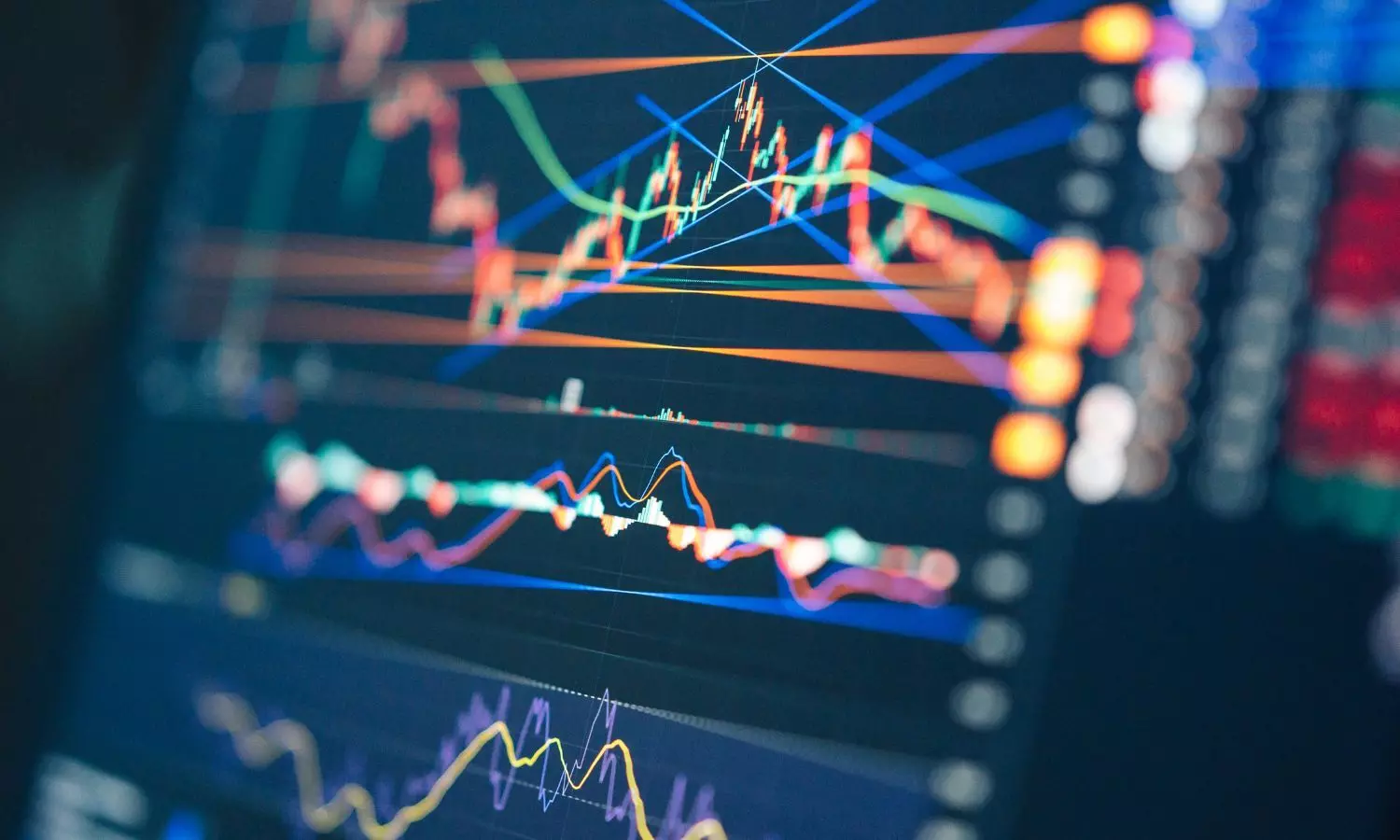Sensex, Nifty Decline Amid FII Selling, Weak Market Sentiment
Indian stock markets fell sharply on Wednesday as Sensex dropped 582 points and Nifty slid 166 points, led by losses in financial, power, and auto sectors amid weak global cues and FII selling.
Sensex, Nifty Decline Amid FII Selling, Weak Market Sentiment

On Wednesday, Indian stock markets continued their downward trajectory, with the Sensex and Nifty indices trading sharply lower by midday. Both benchmark indices were down by more than 0.7 per cent in the afternoon session, led by declines in the financial, power, and automobile sectors.
Investors were cautious as they awaited the US Federal Reserve’s much-anticipated policy announcement later in the day.
By 12:45 pm, the Sensex was down 582.56 points, or 0.72 per cent, at 80,101.89, while the Nifty had fallen by 166.60 points, or 0.68 per cent, at 24,169.40. The market breadth was negative, with 2,268 stocks declining, 1,165 advancing, and 86 remaining unchanged.
According to V K Vijayakumar, Chief Investment Strategist at Geojit Financial Services, the market’s near-term outlook has weakened due to ongoing Foreign Institutional Investor (FII) selling, particularly during rallies. Vijayakumar pointed out that the FII buying observed in early December has proven to be short-lived, with institutional investors selling off Rs 6,410 crore worth of stocks in the past two trading sessions.
The divergence in the performance of Indian and US equities has been a key factor. While the S&P 500 has surged by over 27 per cent year-to-date, the Nifty has managed only an 11.5 per cent increase.
Vijayakumar believes that this trend is likely to persist until there is a revival in India’s GDP growth and corporate earnings, which may become evident in the third quarter of the fiscal year.
The depreciation of the Indian rupee also added to the negative sentiment, with the currency slipping to 84.92 against the US dollar, approaching its all-time low. Analysts pointed to the US’s trade policies, including tariffs and restrictions, as contributing factors that have driven global investors away from emerging market currencies.
Jateen Trivedi, VP of Research at LKP Securities, noted that any dovish tone in the US Federal Reserve’s policy statement could help weaken the US dollar and provide some relief for the rupee. On the other hand, hawkish remarks could strengthen the dollar and further pressure the rupee.
The financial sector was among the hardest hit, with major banks such as HDFC Bank and ICICI Bank witnessing losses of around 1 per cent and 1.5 per cent, respectively. The Nifty Bank, Nifty PSU Bank, and Nifty Private Bank indices all experienced declines exceeding 1 per cent.
The metal sector also faced significant losses, with stocks like JSW Steel, NMDC, and Hindalco plummeting between 2 per cent and 6 per cent. As a result, the Nifty Metal index fell by 1.2 per cent.
In contrast, certain sectors showed relative strength amid the market-wide decline. Healthcare, FMCG, and IT stocks managed to post moderate gains, helping to offset losses in other sectors.
Among individual stocks, Akzo Nobel India saw a significant 7 per cent rise, driven by reports of a potential $2–2.5 billion deal involving its Dulux Paints business. On the other hand, shares of Enviro Infra Engineers dropped 10 per cent, following a sharp 26 per cent rally in the previous five sessions, as the company prepared for its second-quarter earnings announcement.
The broader market indices mirrored the trend seen in the benchmark indices. The BSE Midcap and BSE Smallcap indices each dropped by 0.6 per cent, reflecting the widespread market weakness.
On the technical front, Axis Securities indicated that with the Nifty breaching the 24,421 level, the index could face further profit booking. They highlighted potential support levels at 24,218, 24,101, and 23,898.
Among the top laggards in the Nifty 50, Bharat Electronics, Tata Motors, JSW Steel, Power Grid, and Coal India saw declines ranging from 1.7 per cent to 2.4 per cent. Conversely, Dr. Reddy’s, Cipla, Trent, Wipro, and Sun Pharma led the gainers, with gains of 1–2 per cent.
Investors are advised to stay cautious as the global economic landscape continues to evolve.

